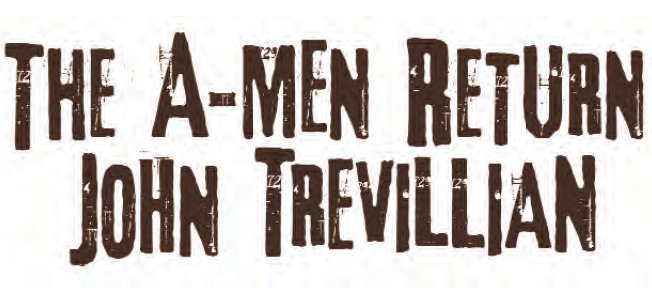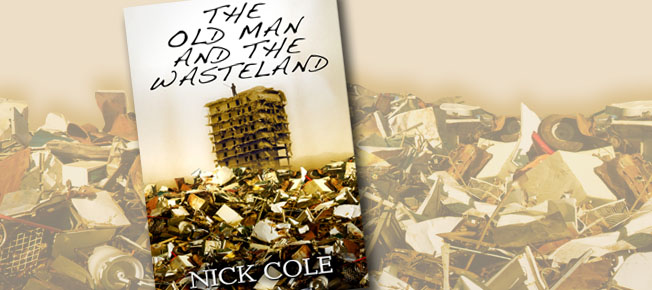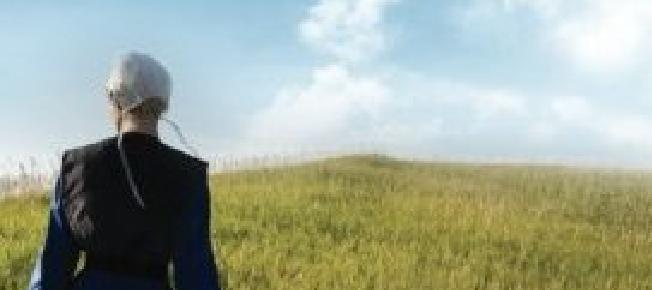Two Weeks, Three Books
Perhaps it was the weird, snow-less winter that led me into the New Year reading assorted books on aliens and the unexplained. I awoke one morning and looked out not at the expected winter palette of white sky, white ground, black trees, but to an other sky: fuschia, striped with purple clouds and dotted with confused migratory birds. This was a day ripe for alien invasion, I thought, with the logic of the recently dreaming. I reasoned that a lack of snow and our global warming trend is all too convenient for off-worlders looking to colonize. The usual cold would slow the joints of their extra, inner mandibles, and snowflakes blur multi-faceted eyes. Snow could be just what discourages the average alien looking to probe, conquer and vacation. Aliens are just harder to imagine thrashing about in snow drifts and contending with entire neighborhoods of down-swaddled men wielding snow blowers. Well… fun to imagine, but harder.
So, for lack of something to shovel, I spent my leisure time indulging in otherworldly fiction. The recent Kepler finds of planets thought capable of life reinforce the possibility of “others” out there, watching us, coveting our planet for its tasty people and affordable cellular plans. Like “post-apocolyptia,” (see Old Man and the Wasteland), alien fiction is a chunky subset of science fiction, rooted in vivid pulp paperbacks that once sold at train stations and in dime stores. Tales of sky visitors or things from other dimensions were probably a favorite topic of our fur draped predecessors. Imagine them huddled around campfires, sharing fantastic tales with gestures, emphatic grunts and shadows thrown on cave walls. So, with a nod to my tangle-haired ancestors, I found several fresh, independently published novels on alien menaces. Us vs. aliens. Us as aliens. Angry, unreasonable, invasive aliens. Some with their own livestock.
I first read the ambitious debut horror novel Red Gods , by James Finan. In this short book, the picturesque English village of Fernby Lakes is experiencing both an intense amount of snowfall and a marauding unknown supernatural entity. (Aliens in snow!?!) History of the area indicates that it may be a worn spot on the fabric between worlds, and something has slipped through. The creature that becomes known as the Shade is certainly (happily) not native to this world. As the book begins, a misfit para-military squad is being sent to access and confront whatever caused the recent massacre in the village. A pecking order is gruesomely established by the squad’s alpha males before approaching the village, and the violence and evident lack of sanity of one of them makes him a suitable weapon for the coming battle.
The book is presented in short chapters from varying, sometimes odd perspectives. The author brandishes a handful of styles to paint his story’s picture as we shift from plot/story to military-style evaluation report, snippets of folksong, astronomical texts and other extraneous background material. Finan knows his characters and tells the story with enthusiasm, broad vocabulary and sometimes startling dialogues. Action sequences are well-imagined, and the segments involving insight into the creature’s psyche are particularly engaging. Red Gods was a fun, quick read, and a good start on my otherworldly reading menu. For me, it suffers a little from the frequent shifts. Longer fiction has leisure time and page count to change narrative without disrupting the reader from the general flow. Red Gods might benefit if it were lengthened, run past a forthright editor who knows the genre, and republished.
Next came Half Way Home, by Hugh Howey. While this is a stand-alone, Howey is the author of a couple of series of short fiction. I’ve been enjoying Howey’s current Wool serial, and I may offer a review of those here in the future. Half Way Home makes “us” the invading force on a strange new planet. Spaceships are sent out by terran corporations, complete with terraforming and exploration equipment and an entire community of unborn people. If conditions are favorable on a new planet, these people are formed and nurtured in life pods. Each potential person is educated and physically trained in vitro from birth to adulthood to perform a specific task in the community when they are awakened. While they grow, a base is set up, land cleared, crops started all by remote. If the planet is judged to be hostile, inviable or unprofitable, the entire project is aborted and destroyed. In the middle of just such a situation, something causes the abortion sequence to stop. Amid fire and chaos, some pods open and little more than 50 newly born teenagers are poured out prematurely into their new world.
Told in first person from the perspective of a young man, Porter, who was intended as the community’s psychologist, we follow the struggle of their first days as they see to the immediate needs of the community and form friendships. The survival tale turns to intrigue as someone suffers a fatal accident and the home planet starts making urgent, unreasonable demands on the half-formed community. Some of the teens mutiny, and leave the shelter to journey from the little known into the unknown on this nameless planet.
Some books that read as quickly as this one might pass through and be discarded by your consciousness. But in Half Way Home, I found myself wanting to linger with this group. To me, that’s one of the hallmarks of a successful book. I found myself wanting to explore the planet more fully, learn more of its flora and fauna, to watch the community thrive and grow, and see Porter conquer his uncertainties. There are not a lot of surprises in this book, but the ground it revisits is fertile ground – a new planet ripe for alien infestation – in this case, us.
New Years’ weekend was rainy and chilly – perfect for reading – and I ran across the fun Beyond Armageddon series by Anthony DeCosmo. It’s a series of five novels (and counting) set on an Earth that’s been invaded by not one breed of alien, but several. Main character Richard “Trevor” Stone is an ordinary, beleaguered car salesman when the world changes. Fleeing into the countryside, he meets a mysterious old man who seems somehow part of an even greater conflict. Stone is given three unlikely gifts – abilities that will help him in the future. Using his special talents to battle or evade alien forces, Stone becomes the one man who can assume the heavy mantle of leadership, gathering what’s left of humanity to him not just to survive, but to fight back.
It’s a very ambitious venture for Stone (and author, DeCosmo) to tackle a total invasion and the total expulsion of alien forces from Earth. I was surprised by the variety of alien adversaries. From years of movies and books, one might come to expect a single multi-form beast, sentient ooze, or even a thing riding a sort of pseudo-reptilian dog or mount, etc. While reading the first part of this book, there’s such a variety of aliens that I said aloud… “did they bring their livestock with them?” It made me smile, reminding me of Teenagers from Outer Space, a 50s movie where humanoid aliens land on Earth, looking for a planet to use as pasture for their giant lobsters. So few alien flicks give such a reasonable explanation for invading Earth! But I digress, and Beyond Armageddon doesn’t seem to be about livestock. Indeed, many of the different aliens are viciously adversarial to one another, like Mothra and Gamera before they teamed up.
I hesitated to review Beyond Armageddon before finishing more of the series. But after reading the first installment, I was committed enough to know I’ll be wandering into the second. Book one is an ample 410 pages that reads easily between life’s usual distractions. The writing is entirely unassuming. The story is told with gusto and at a quick pace as Stone’s band of fugitives carve a pleasant foothold against the alien occupation. It’s one of those books where it helps to set aside your disbelief, shutter your critical eye and just jump in. I found it satisfying, like having pizza when you’re hungry for anything but the healthy food you have in the fridge. And, since reading it made me shirk chores a couple times, I count it as my first guilty pleasure read of 2012.
While I’ve been writing this, nature’s ladled out enough white stuff to insulate me, for now, from all but the most hardy aliens in foul-weather gear. Their goofy antennaed eyes will be fixed on southern lands instead. Still, just a glance over smooth sparkling snowscapes makes it so easy to entertain thoughts of other worlds. Armed with a plucky attitude gleaned from these books, I grab my coat and shovel. “Let them come,” I think, stomping out into the unknown.
The three books I mention here are all available and nearly free on Amazon. Beyond Armageddon is an older title with current and new additions to the series. Red Gods was provided for review by James Finan.
© 2012, The Indie Mine. All rights reserved.





Great writeup. I think you’ve sold me on some of these, particularly Howey’s book.